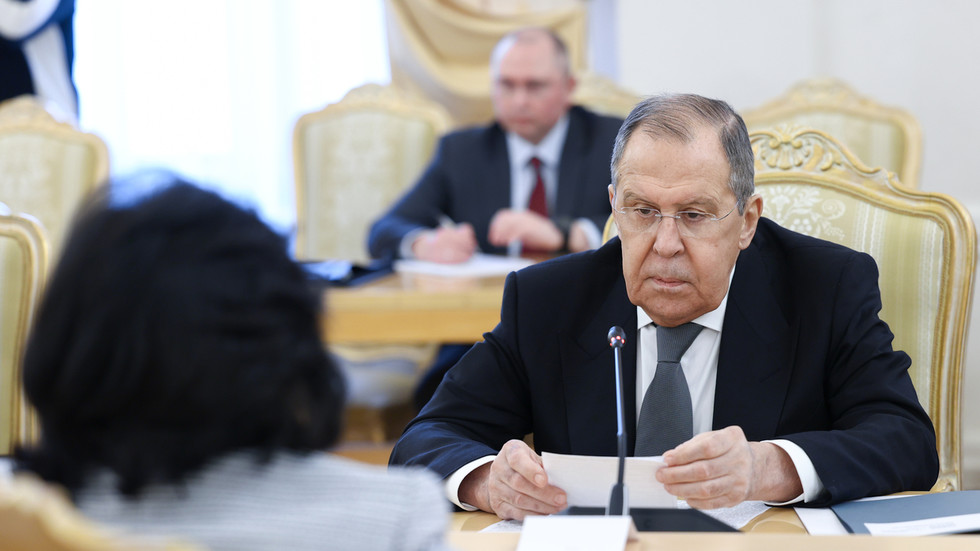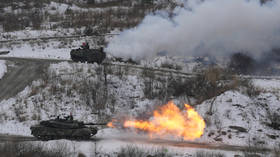
The Russian foreign minister warned against any steps that could escalate tensions

Russian Foreign Minister Sergei Lavrov during a meeting with North Korean Foreign Minister Choе Son-Hui © Press service of the Russian Foreign Ministry; RIA Novosti
The US and its Asian allies are increasing regional tensions with their hostile policies toward Pyongyang, Russian Foreign Minister Sergey Lavrov told his North Korean counterpart, Choe Son-hui, on Tuesday.
Speaking at a meeting with Choe in Moscow, Lavrov said the approach by the US and its “regional satellites” is serving to “create threats to the security of the DPRK” and will not lead to progress in reducing tensions.
The US and its allies have been eroding long-established mechanisms in the Asia-Pacific while attempting to build blocs and develop NATO infrastructure in the region, according to the Russian diplomat.
Lavrov stressed that Moscow will continue to call for “the abandonment of any steps that lead to an escalation in tensions,” and will insist on a “comprehensive and fair settlement of existing problems” while developing relations with North Korea.
“We have always advocated the establishment of a negotiation process without any preconditions in order to achieve lasting peace and stability throughout Northeast Asia,” the foreign minister said, noting that Russia has already made proposals in this regard both independently and with China at the UN Security Council.

Read more
Choe responded by thanking Russia for its support and said Pyongyang is aiming to strengthen relations with Moscow even further in 2024, to the benefit of both nations.
The meeting between Lavrov and Choe comes as tensions between North and South Korea have escalated in recent weeks, following joint military exercises conducted throughout the past year by Washington and Seoul.
Pyongyang has condemned the drills as a threat to its national security. Leader Kim Jong-un has accused the US of seeking a military confrontation on the peninsula, and of turning South Korea into a military base and “colonial subordinate state.”




